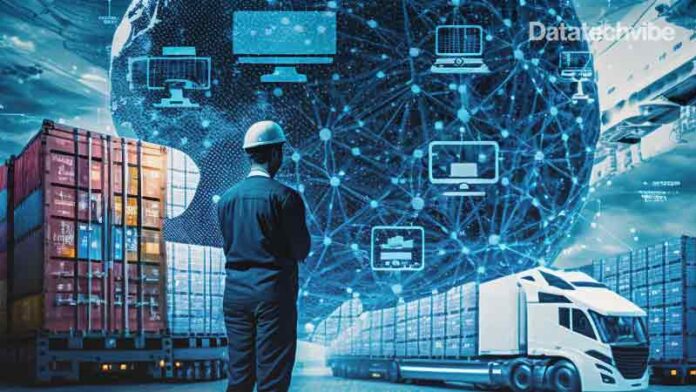The best AI outcomes often come from a willingness to collaborate with partners, providers, and even competitors on shared data initiatives. This leads to combining not only digital supply chains but also physical ones.
Before enterprises in the United Arab Emirates (UAE) moved, almost as one, to the cloud, the government had already encouraged significant digital transformation. Through various published strategies, from Operation 300bn to National AI Strategy 2031, it became clear that the UAE’s leaders saw technology as an economic differentiator. The government was keen to inspire wide-scale change across industries, which is what happened. AI, cloud computing, the Internet of Things (IoT), and other technologies have been used to great effect in largely insulating the country from global supply-chain issues.
Many of these advanced use cases have been attractive because these emerging technologies plug directly into core business suites like enterprise resource planning (ERP) solutions. Manufacturers, distributors, and retailers are reshaping the way they operate.
The success stories are those businesses that never forgot they were businesses and always remembered that AI, like any technology, is a tool. There is a difference between using a tool to transform your business and transforming your business to accommodate a tool. Successful transformers understand their business from top to bottom. They know what data they have and where it resides. They are aware of every departmental silo. And they are willing to build strong partnerships (internal and external) that facilitate seamless, secure data exchange.
PwC global research found that 81% of what the company’s researchers called “digital champions” had focused on “external collaboration or end-to-end orchestration”, illustrating how successful transformers have tried to eliminate siloed supply chains and move towards data-driven ecosystems that are connected, autonomous, and self-optimising. The most effective data supply chain strategies rely on these connected partner communities. Their implementers remove data silos by uniting functions such as finance, design, testing, and manufacturing. In a way, the shopfloor and top floor merge. A converged technology suite and common data source allow insights to emerge more frequently, and the business can then make faster, more impactful decisions.
Unlimited potential
In recent months, we have seen news reports and special features on AI that have inspired imaginations across the region. What used to be a backroom gimmick now has almost unlimited potential. AI is a critical element in the establishment of “data bridges” — information flows between departments that eradicate traditional silos. AI can automatically analyse data from various business units and sift out actionable insights that have the potential to enhance real-world processes.
The success stories distinguish themselves, however, in solving the problem of everyone having access to quality data. These enterprises lead their industries because they have the foresight to initiate holistic, data-first business strategies. This is where ERP takes the stage. Modern ERP systems are designed to incorporate AI into taking data from different departments for analysis. The ERP platform will convert insight into action. Where previously it was focused on generation and collection, ERP now contributes to knowledge-based, strategic execution.
AI’s power multiplies when business stakeholders make it available outside the data science and IT functions. With minimal training, low-code/no-code development platforms can empower all employees to innovate. Non-technical staff can become “citizen developers”, improving workflow efficiencies by digitalizing manual tasks. This makes the shop floor more efficient because some of these tasks might take hours to complete — hours that can now be devoted to tasks more demanding of human imagination.
Strategic partnerships
Among the most effective adoptions of AI, we see organisations that have transformed their culture, spreading awareness of what AI is, what it is not and what it can and cannot do. With an effective AI framework behind it, the business can prosper sustainably. To make this work, though, the role of the ERP platform in delivering AI must be considered. Expecting internal IT teams to provide everyday technical support for the advanced new ecosystem is unrealistic. This function should be fulfilled by a strategic partner who has the experience to understand your specific industry requirements and the resources to provide dedicated support, especially during the post-implementation phase.
A 2023 Epicor Industry Insights Report identified security and risk mitigation (26%) as the biggest challenges organisations face when implementing new ERP solutions. This was followed by implementation and training, customisation, and integration with core business applications, all tied at 24%. A trusted partner who knows the industry will see these challenges daily and have strategies to overcome them to deliver AI-powered data integrations, cybersecurity, or adaptability.
The best AI outcomes often come from a willingness to collaborate with partners, providers, and even competitors on shared data initiatives. This leads to combining not only digital supply chains but also physical ones. By casting such a wide net, business leaders across the region can gain access to a trove of insights that will help them absorb externalities more easily and navigate an uncertain economy with confidence.
In the context of a business-first approach to AI, the intense and often hyperbolic conversations that have sprung up around generative AI is worth mentioning. ChatGPT and its competitors are intriguing subjects, but business leaders must remember their core business. They must identify a pain point first and decide how to solve it. Perhaps AI is the solution, but it must balance automated data exchange with privacy and security to ensure that the data supply chain remains viable in the long term.
Scoring goals
AI has much to offer companies trying to remain afloat and compete in the global digital economy. Whether you are a manufacturer, distributor, retailer, or other, digital transformation with AI at its heart can usher in a more resilient and agile era for the business. As long as you take care to invest in industry-specific AI solutions and find the right partner, you are likely to achieve — or even surpass — your supply-chain goals.









